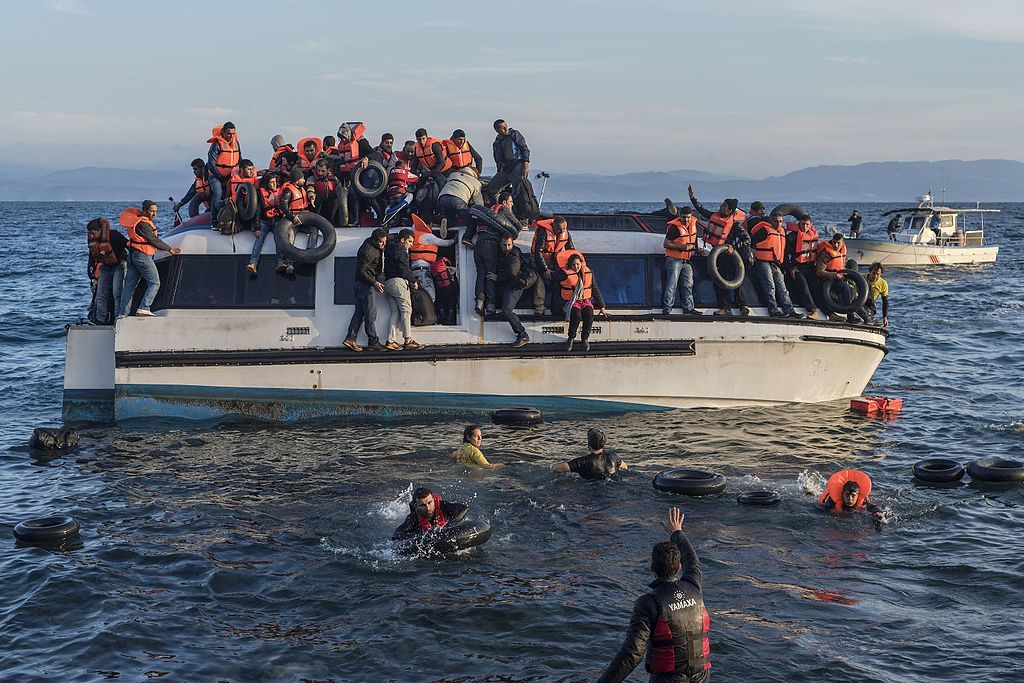What started out as an extremely violent civil war in Syria in 2011 has now turned into one of the worst humanitarian crises in our age. Since the Syrian civil war began in 2011, 386,000 people in Syria have been killed, 14,000 of them being children, according to the Syrian Observatory for Human Rights. With the lack of health care, access to clean water, education and a majority of the community living in poverty, Syrian Refugees flee the country in hopes for a better life. Americans across the country ask their role in aiding refugees.

commons.wiki.org
The President of the United States, Donald J. Trump, said that he could look refugee children from Syria directly in the face and tell them they are not welcomed here, in the land where the majority people that live here come from immigrants. Trump then continued to say that these refugees have ISIS flags on their cell phones, and that we cannot trust them because we have no documentation of where they come from. After stating all this, he then continued to tell everyone that he has the biggest heart. The United States of America is denying the refugees access to the states based off of fear.
Denying people based off of fear has been done in the history of the United States before. During World War II, the United States denied Jews access to the states because they were fearful and thought that the refugees could possibly be German spies. This action caused by fear then played part in the killing of hundreds of Jews that suffered through the Holocaust, while many were killed. Despite the death of millions of people in the Holocaust, the State Department tightened their immigration requirements after 1940, even after they had recognized the Holocaust. To this day, our country is living in fear that enemies are trying to come with the refugees who are fleeing the horrific places that they are living in. As of 2015, approximately 83,000 Syrians (out of 43.3 million) have fled Syria and resided successfully in the United States.

Emily Janny, the president of the Catholic Relief Service (CRS) group at Cabrini University, sees some differences in the Syrian Refugee Crisis and the Holocaust, she also sees some similarities. “I guess you could call this the modern day Holocaust,” Janny said. “I still believe that the Holocaust was worse, but these are different times. They are similar in the sense that a race is being forced out of their country because of violence.”
Throughout the history of the United States of America and the millions of immigrants that have been let in to this country, not a single one of them has been successful in committing a terroristic act.
Today in the U.S., the refugee process has come to basically a stop. Instead of speeding up the process of accepting refugees in the country like Germany, which for a time admitted many refugees, or Turkey, who already has 1.8 million refugees from Syria, the United States refugee process is taking a whole 33 months to complete the process. In the meantime, these refugees are drowning, starving and being brutally murdered trying to free themselves from this horrific crisis.

Janny said that is our time to help. “As an ambassador for CRS, I think we really need to bring awareness to what is going on overseas. What is happening in Syria is absolutely horrific. These women and children have to flee there homes because of the constant threat of violence, without knowing if they would be able to return ever again.”
How would you feel if you were forced out of your home with no knowledge of when you would return? It’s time to bring awareness to our campus and our communities about the horrific events that are happening. For more information on the Syrian Refugee Crisis, please visit syrianrefugees.eu or www.mercycorps.org/.


